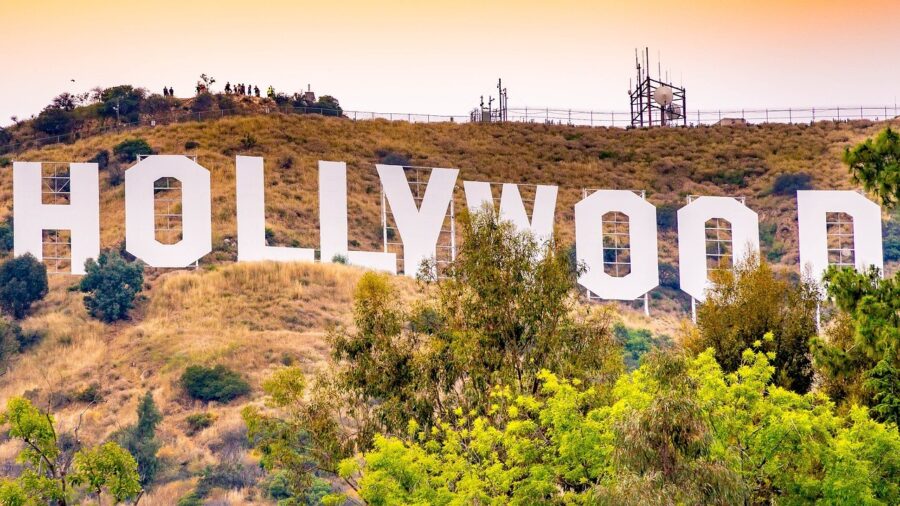Actor’s Strike Going To Be Stopped By The Government?

Hollywood industry leaders are seeking the intervention of federal mediators to avoid an actor’s strike. The deadline for contract negotiations between The Screen Actors Guild – American Federation of Television and Radio Artists (SAG-AFTRA) and the Alliance of Motion Picture and Television Producers (AMPTP) is July 12 and 11:59 pm PT.
Top Hollywood CEOs like David Zaslav and Ted Sarandos are calling on the federal government to intervene in attempts to prevent the looming SAG-AFTRA strike.
According to Variety, notable figures such as Disney TV’s Dana Walden, film chief Alan Bergman, Warner Bros. Discovery’s David Zaslav, and Netflix’s Ted Sarandos convened via a conference call on the evening of July 10 to discuss the matter. Top talent agency heads, including Ari Emanuel (WME), Bryan Lourd (CAA), and Jeremy Zimmer (UTA), contacted SAG-AFTRA leaders, offering assistance to prevent an actor’s strike.
SAG-AFTRA later agreed to federal mediation to break the negotiations deadlock with AMPTP. However, the deadline for reaching an agreement to prevent an actor’s strike remains July 12, at midnight PT. “We will not be distracted from negotiating in good faith to secure a fair and just deal by the expiration of our agreement,” SAG-AFTRA said in a statement.
“We are committed to the negotiating process and will explore and exhaust every possible opportunity to make a deal, however, we are not confident that the employers have any intention of bargaining toward an agreement,” the statement continued. SAG-AFTRA also strongly condemned the tactic of naming the CEOs of several entertainment companies as the force behind the medication request.

“[That] information that was leaked to the press by the CEOs and their ‘anonymous sources’ before our negotiators were even told of the request for mediation,” the statement added about the actor’s strike. “The AMPTP has abused our trust and damaged the respect we have for them in this process. We will not be manipulated by this cynical ploy to engineer an extension when the companies have had more than enough time to make a fair deal.”
SAG-AFTRA strongly condemned the tactic of naming the CEOs of several entertainment companies as the force behind the medication request.
An actor’s strike would result in the suspension of scripted television and film production conducted by AMPTP companies worldwide. SAG-AFTRA members who have volunteered as strike captains have already participated in picket line training sessions led by their counterparts from the Writers Guild of America.
“We’re mobilized and prepared to do whatever we need to do to support our membership,” said B.J. Lange, who was getting training at the Paramount lot, told reporters on the scene. At the nearby Netflix headquarters, numerous SAG-AFTRA members joined the WGA in their marches, a practice they have been engaging in for the past two months.
The Negotiation Deadline Approaches
The original expiration date for the SAG-AFTRA contract was June 30. However, it was extended for an additional 12 days as both sides agreed to continue negotiations to prevent an actor’s strike. While some agreements have been reached on specific issues, significant differences concerning artificial intelligence and streaming residuals remain unsolved.
SAG-AFTRA is also seeking substantial wage increases and improved funding for its pension and health plans. On July 10, SAG-AFTRA leadership held a meeting for entertainment publicists, during which they outlined the guidelines that would be enforced if an actor’s strike is called.
Actors and performers would be prohibited not only from reporting to the set but also from conducting interviews to promote their work.
It’s no coincidence that strike action in the entertainment industry is on the verge of merging. However, the reasons aren’t sinister at all. The Writers Guild of America (WGA), which represents film and television writers, and the Directors Guild of America (DGA), which represents directors, as well as operate under three-year contracts with the AMPTP.
Actors and performers would be prohibited not only from reporting to the set but also from conducting interviews to promote their work.
These contracts have traditionally been synchronized so that they all expire consecutively, starting with the WGA. The Writers Guild of America has been on strike since May 2. The DGA ratified their new agreement at the end of June. It remains to be seen if SAG-AFTRA reaches a deal to prevent an actor’s strike from moving forward.












